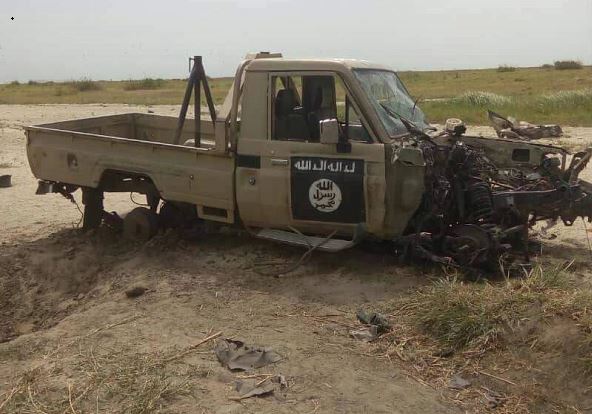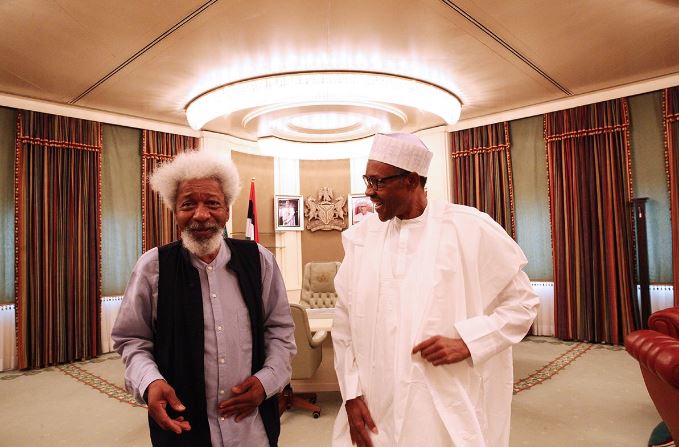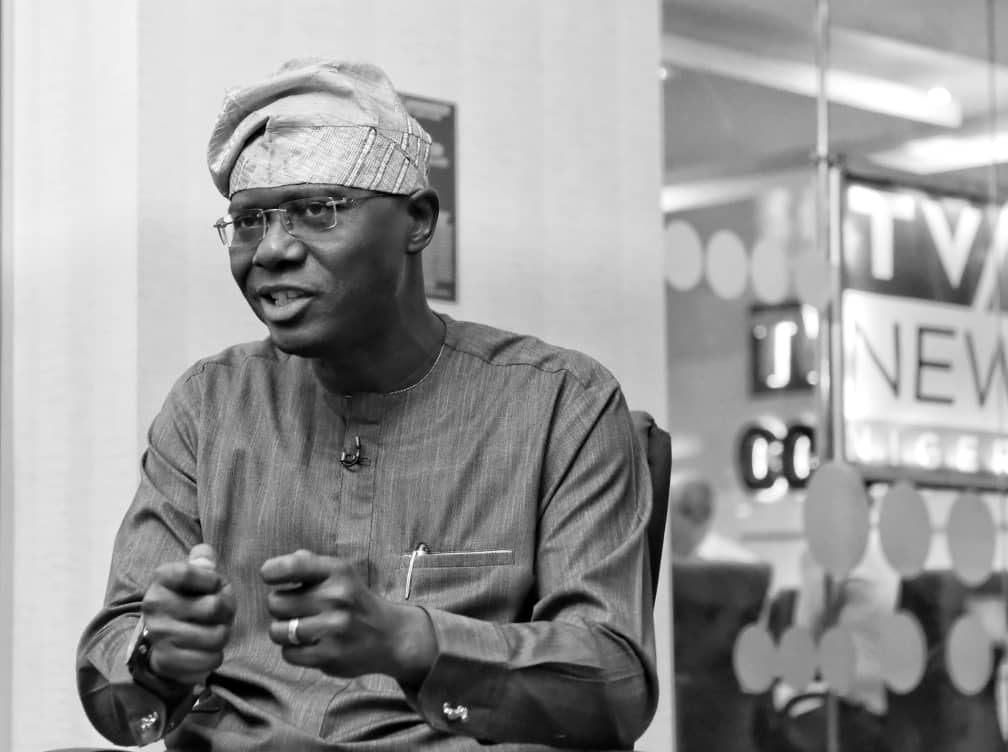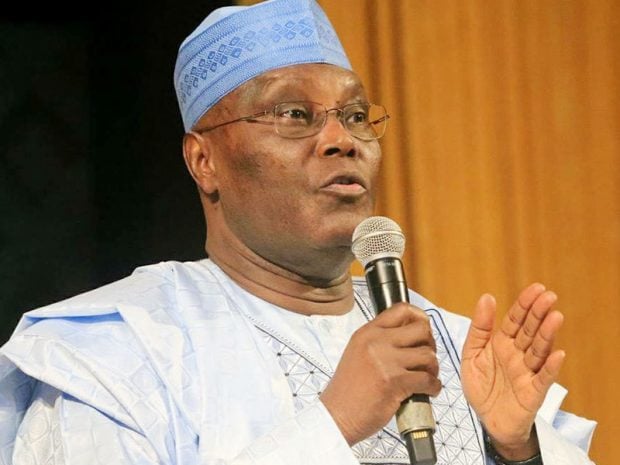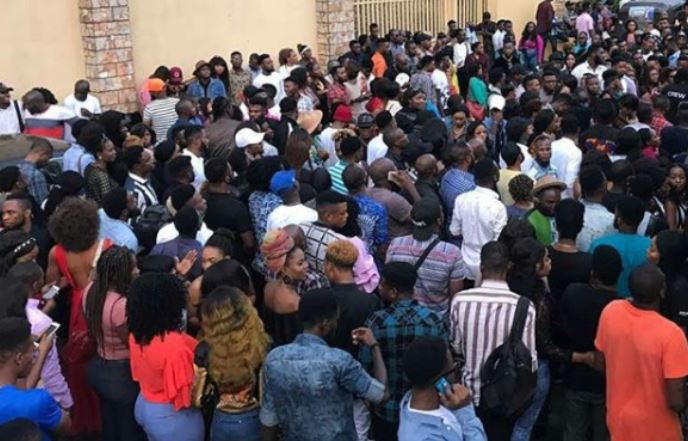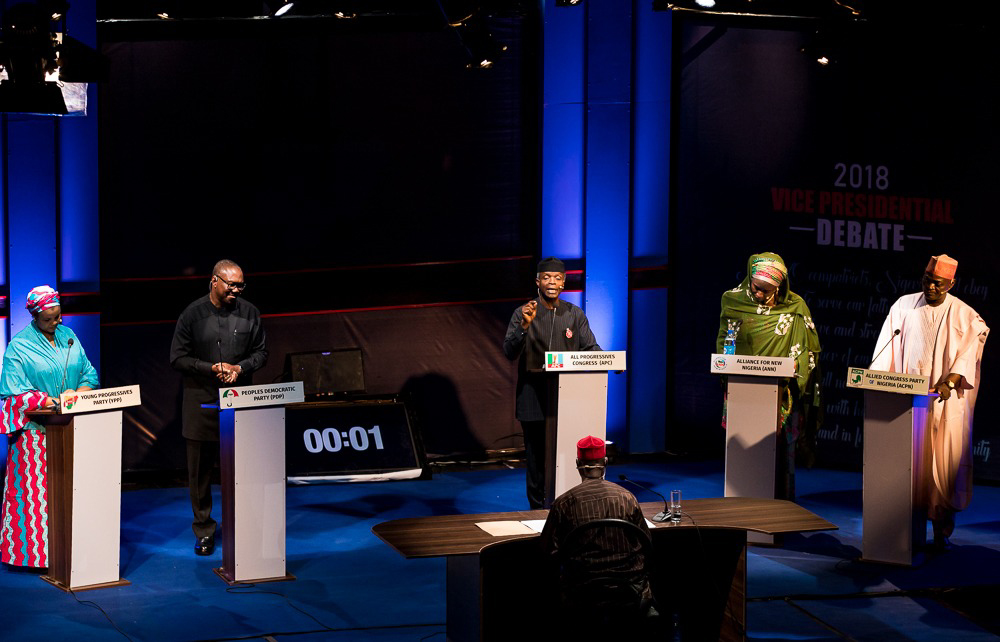Of course I knew I had to make the sacrifice of traveling the whole of Nigeria and especially to visit states I’d never been to since I was born. To be the president of Nigeria, the least one should do for this country in my view, is endeavor to travel the corners of the country and document the entity one wishes to govern. I knew it will be risky, but the risk will be worth it, and that it was worth laying one’s life down for Nigeria where necessary. Once that was rationalized, there was no stopping. Off to Maiduguri I went.
I had the usual scare of flying as we departed on Azman Airlines for Maiduguri from Abuja. The flight was right on time and I almost missed it, and the great opportunity of visiting that region. Once we were in flight I started to enjoy the journey. In the flight was the governor of Borno State, Kashim Shettima, who decided to shake hands with everybody on the flight. I mean EVERYBODY. Some he gave a bit of money. His anointed successor, Babagana Zulum, was in tow, shaking hands too… I might say a little bit more mechanically. I wondered if that was what Shettima did in every flight. Meanwhile the flight to and fro Maiduguri was chock full. Not a single vacant seat. I hope to explain the buzz shortly.
One of my greatest fears about flying to Maiduguri stems from an old news I had read in the Punch in the Jonathan days, that the Boko Haram boys had imported hundreds of anti-aircraft missiles. Having never been in that region, I wasn’t sure what the terrain was and felt those who travel there were taking some unnecessary risk. The reportage around BH got quite sensational at some point, and many people benefited therefrom. Luckily there hasn’t been incidences where passenger aircrafts were brought down using anti-aircraft missiles.
Maiduguri on the ground was quite modern and upbeat in my view. One could not get that sense of imminent danger. People seem to have shaken off the trauma that was Boko Haram and many bombings in and around town. People went about their businesses. The dry weather probably made the city look somewhat neater than many I’ve been to lately. Many buildings on the arterial road in the city were new, as they had been recently built in compensation for recent trauma and destruction. I met great, smart and upbeat people and eventually settled down at Command Guest House, a modern military environment. I had chosen this hotel online because I hoped to meet some of the military brass and interview them about their experience in this region. I wasn’t that lucky, but the I met dozens of young people who would pass for Lagosians, given their funkiness and their connection with contemporary showbiz. A nite club operates daily within the premises of the guest house. I met young men and women from the south of Nigeria, who see Maiduguri as home and couldn’t be convinced to leave. Some told me they survived the worst of BH and now the good times had returned.
Advertisement
Contrary to what I’d heard, the density of humanitarian workers wasn’t as much as what I’d seen in Liberia in 2012. In Monrovia then, every third car on the streets was a diplomatic or humanitarian mission car. I had felt then that they had no salutary effect on the lives of Liberians beyond creating jobs and engagements for mostly American youths. Maiduguri was not like that. The city was decidedly Nigerian. We managed to crowd out anyone else. And the hotels weren’t as expensive as I heard these NGO people had made it.
My party, ANRP, organized some road rallies to sensitize the city about what we had to offer. The reception was amazing, and with the crowd, things got a bit scary at some point. They could almost flip over the SUV we were in. I’d probably say the youths of Maiduguri were not very calm or had developed a certain militancy as a result of their recent experiences. Luckily, our two candidates for the House of Assembly that we had are strong in their constituencies and we are poised to make a dent in that region. The Computer Party (ANRP) is well-embraced by the youths of Maiduguri and environs.
The next morning came and it was time for another adventure. I needed to visit Damaturu. A senior friend and colleague, Alhaji Musa, who lived in Damaturu was around at 7am the next day as agreed. A few people who may have come with me on the journey had demurred at the last minute. But a couple of guys were appointed to escort me to and fro. I understood that there were four routes out of Maiduguri, but only one was passable with a permissible level of risk from you-know-who. The Bama, Baga, and Dikwa routes were on lockdown. Only the Damaturu route was open, and as we sped along, I was told some of the towns do not allow any car pass through after 4pm. That may mean that even the Maiduguri – Damaturu road gets closed down by 4pm.
Advertisement
I passed through villages and small town that had either been burnt down or ransacked by Boko Haram in the past. Some of them were totally deserted by inhabitants at some point. Boko Haram had hoisted its flag in some of them. We passed towns and villages like Beni Sheikh, Tamsu Kawu, Makinta Kururi and so on, which had once been captured but now see life gradually returning though there was still an edginess around. I passed the military camp where many soldiers were recently ambushed, costing many patriotic lives. We also passed through this scenic expanse of desert speckled with sparse shrub and I was told this is where Boko Haram people still pass diagonally from one side to another, using their motorbikes. When they passed, any unlucky passer-by could be hijacked; trucks, passengers, anything. At some point on the return trip, I questioned why I took the risk. One of my hosts in Damaturu informed me they hadn’t visited Maiduguri for upwards of 5 years. They used the Kano route instead.
In Damaturu I found another city that had also suffered its own fair share of trauma by Boko Haram. On our way to a forgotten museum called Gidan Kwale Kwale, where a 7,500 years old boat is preserved, I was shown a building occupied by Police anti-bomb squad, which had been targeted and blown to piece by Nigeria’s traducers, Boko Haram. My host said they had thought that Damaturu was immune from the trouble, but were soon proven wrong. Today, life is also returning to normal in the friendly city of Damaturu, with people still looking out for any potential signs of trouble. I was informed that there were times in the past when Damaturu was on lockdown for days, when no one could even venture out of their houses.
Maiduguri and Damaturu are cities I will love to visit again chiefly because of the friendly upbeat people I met. I hope we are able to get to the bottom of the terrorism someday soon. Traveling to this region further affirmed my belief that the diversity of this nation is an advantage. Imagine that under 24 hours I was flying into Calabar, over thick, dark forests, after having been in vast desert land? There are different worlds in Nigeria, and if leaders could reason beyond their myopic pursuits, our diversity will be a great advantage. The poverty in the land – north and south – is a clear and present danger and evidence that the model applied by our leaders, which has resulted in Nigeria being the country with the highest levels of inequality in the world, as well as the country with the highest numbers of extremely poor people, has totally failed. Those leaders should prepare to give way entirely, and immediately. We are tired already.
As regards the Boko Haram war, I think we have spent enough on arms and ammunition already. As I rode through these towns and villages, I wondered what the whole war was about. At some point, I felt it may be some sort of genocidal war being waged against the people of that region by someone who believes they are too poor to continue to exist. Or how do we explain this? Vast amounts of land has been depopulated. We have to think of every possibility. And if this is true, the issue becomes whether we are lifting the humanities of those still alive so that no one continues to see them as cannon fodder and dispensables. In the heat of BH I wrote on several fora that this did not look like some Muslim vs Christian thing, or a north vs south issue. Today, I hear our president Buhari saying that there are foreign elements and interventions in Boko Haram. I also notice, quite sadly, that the top military people have started selling the idea that Boko Haram has passed the baton to something called ISWAP. I believe they are only setting Nigeria up for further rip off. For if we couldn’t handle Boko Haram, how will we handle some shadowy, more deadly global group, who have now apparently disappeared from the middle east only to appear in Nigeria? Why are we so eager to call trouble to ourselves? Many people even believe that the ISIS/ISWAP thing is fully orchestrated and backed up by some of these powerful countries. So could we ever cope with that?
Advertisement
Given the lay of the land, the truth is that technology and intelligence are the ultimate solutions to this problem. If we wanted, we can infiltrate the entire region and have people who can feed back information to commands. Also, given that this vast area is desert land, visibility is fairly easy using drones. It is impossible for convoys of trucks to drive through the desert and not be sighted by simple surveillance technology. What has caught up with us is our refusal or inability to use our hands and brains to save ourselves, instead we depend 100% on other people and what they can do to help us. Boko Haram is therefore the best evidence so far, of a failure of leadership, and the fact that over time, we have shown that we have no plans for Nigeria as an entity. There is no better time for old leadership to give way to new in this country.
Meanwhile, for now, I remain the only presidential candidate to have undertaken this trip. Pending when another one does, let me wear my laurel on my sleeve. I urge everyone who intends to govern this nation to take this trip so that they document the problem they wish to solve, first hand.
Fashua is the presidential candidate of the Abundant Nigeria Renewal Party (ANRP)
Advertisement
Views expressed by contributors are strictly personal and not of TheCable.
Add a comment

